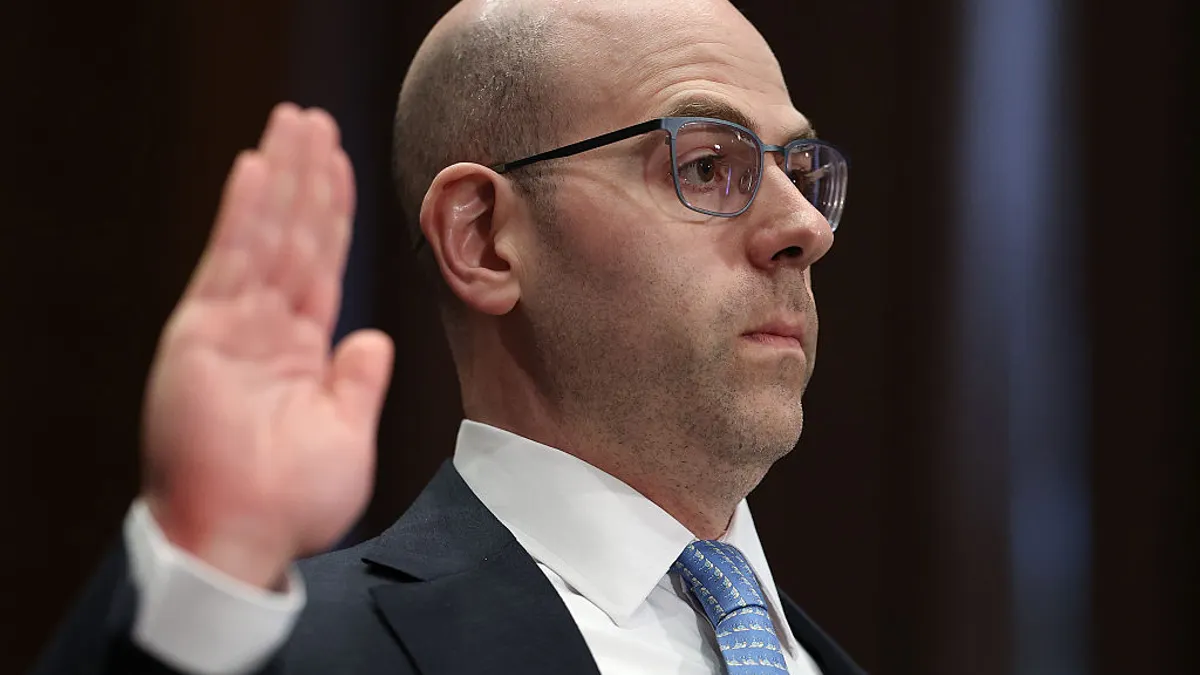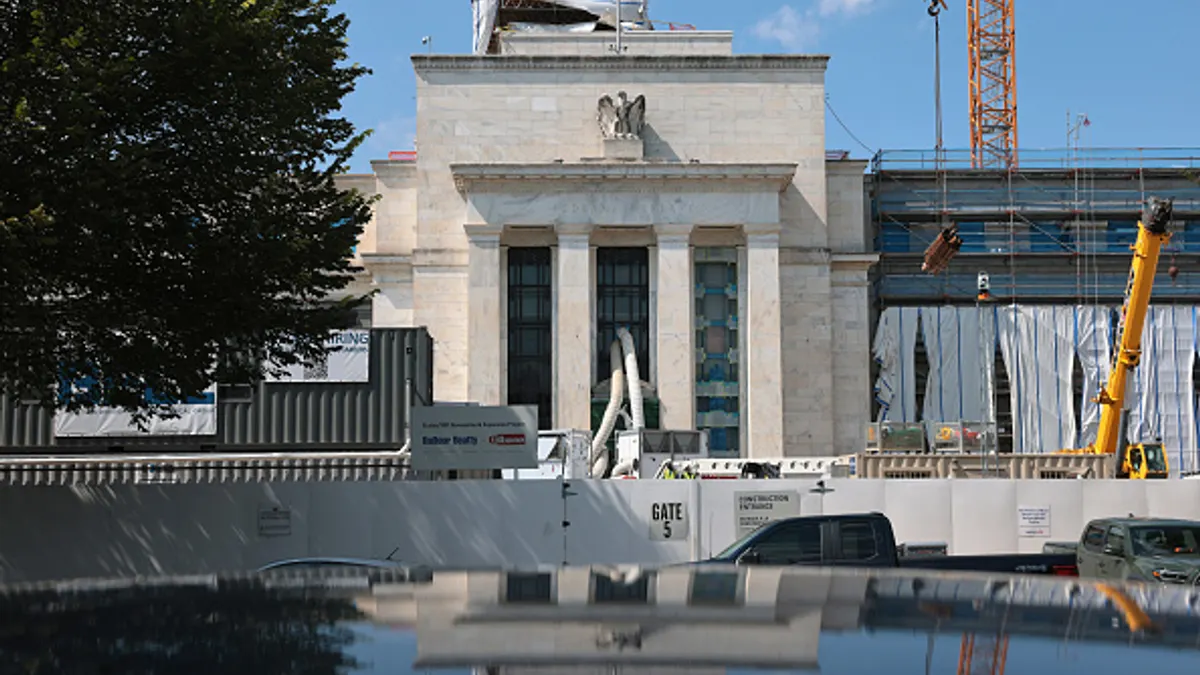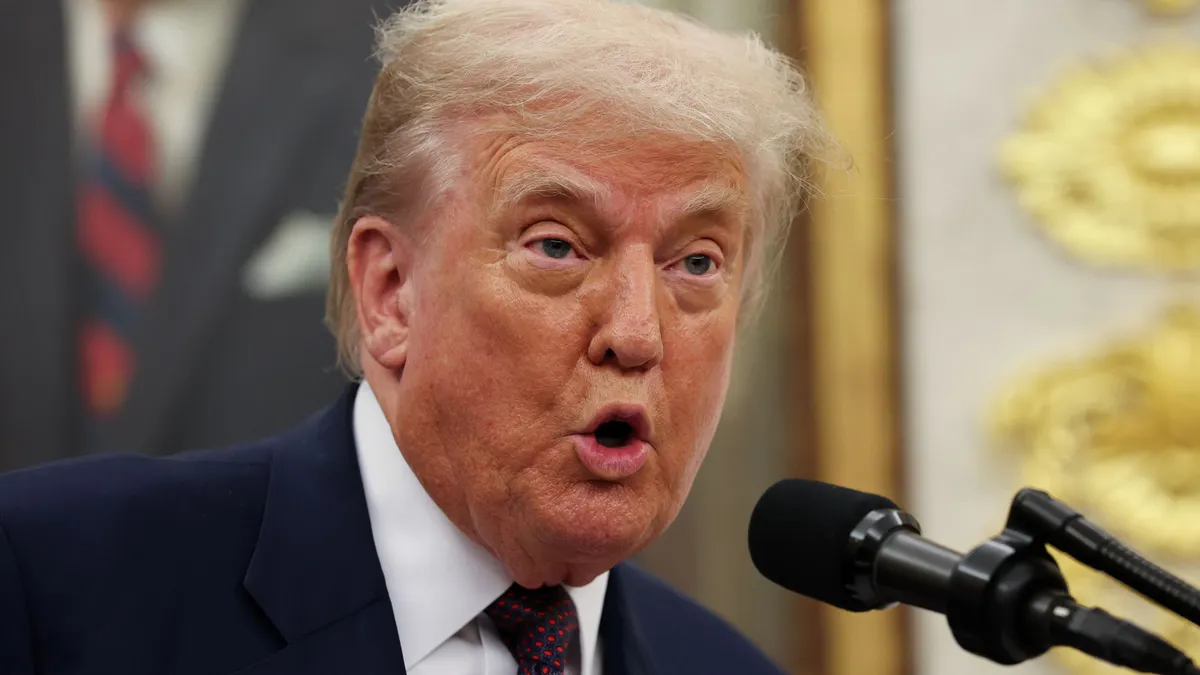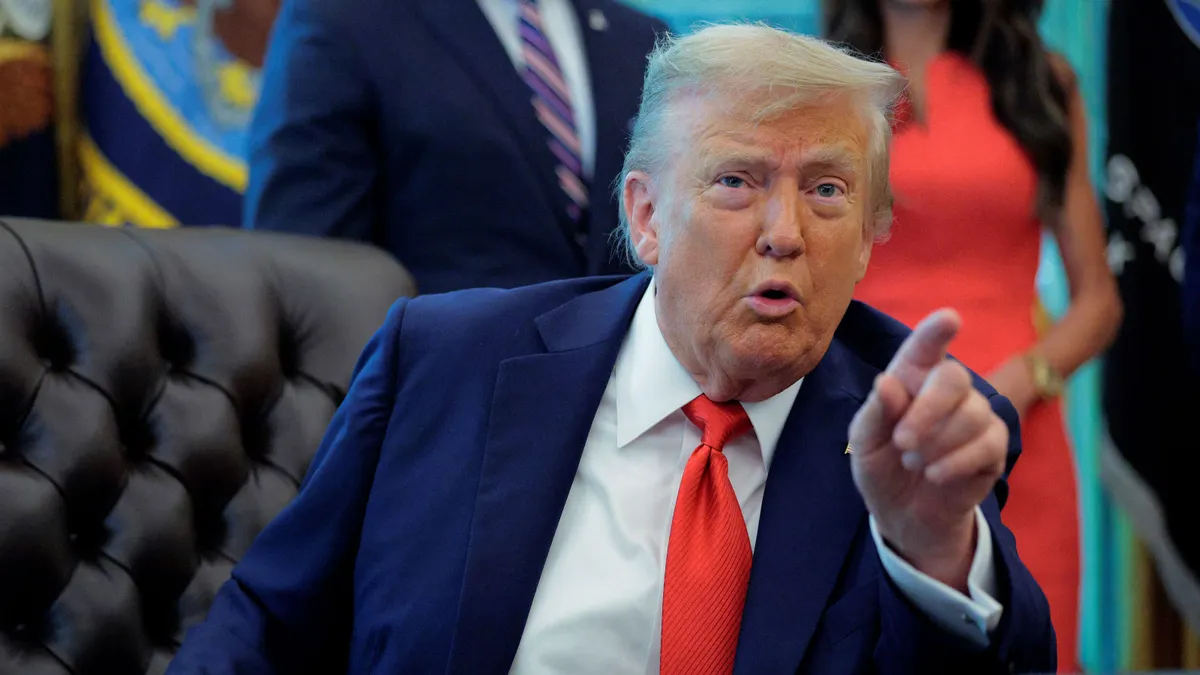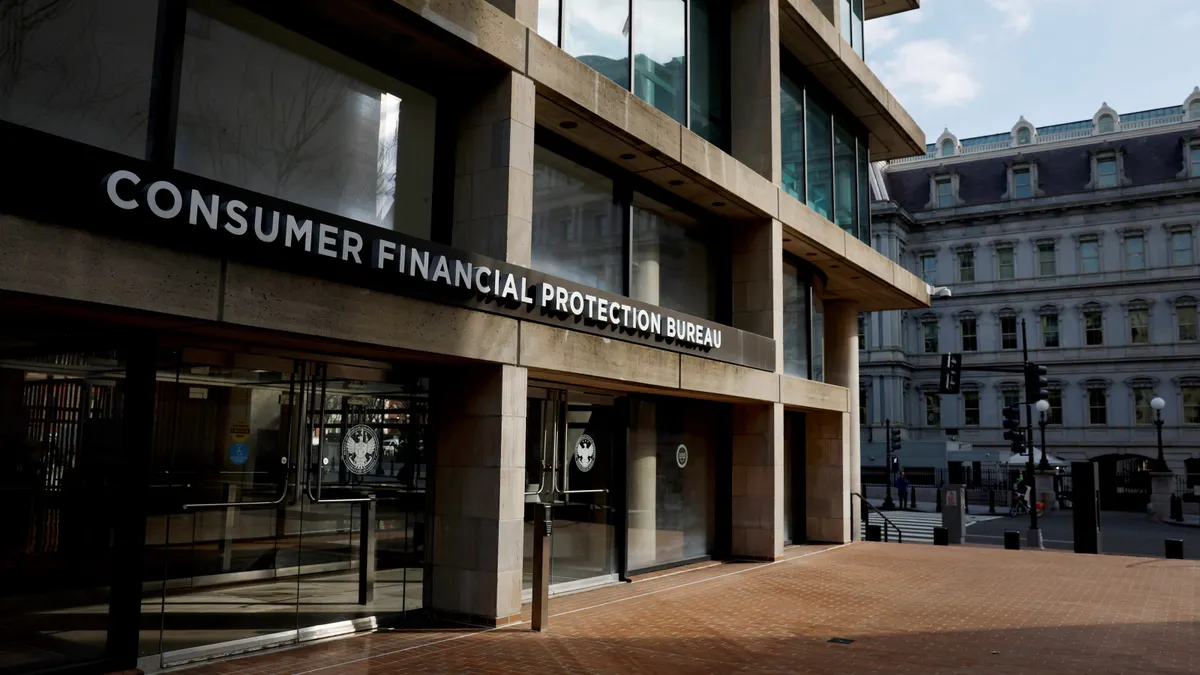Although many questions Federal Reserve Chair Jerome Powell faced during congressional hearings this week related to inflation and changes to regulators’ capital requirements proposal, he also spoke to commercial real estate concerns and engaged in a chippy back-and-forth with Sen. Elizabeth Warren, D-MA.
During Tuesday’s Senate Banking Committee hearing, Warren used her time to call out the Fed’s outlier status on a long-delayed rule to curb incentive-based compensation arrangements for bank executives, a topic she addressed with Michael Barr, the Fed’s vice chair for supervision, in May.
For the rule to become effective, it has to be proposed and adopted by the Fed, the Office of the Comptroller of the Currency, the Federal Deposit Insurance Corp., the Securities and Exchange Commission, the Federal Housing Finance Agency and the National Credit Union Administration.
Each agency except the Fed has issued notices of proposed rulemaking or signaled an intent to move forward on the rule. Barr has said the Fed is “committed to following the law,” but the board believes “we need to conduct some further analysis before deciding what steps to take.”
An as-yet-unfulfilled requirement of the 2010 Dodd-Frank Act, the rule would also force banks to claw back pay from executives who show an insensitivity to risk.
In a testy exchange, Warren — a longtime critic of the Fed chair — accused Powell of “trust[ing] the banks to write their own rules,” citing comments he made in 2018 that he expected banks will have compensation plans in place that don’t incentivize excessive risk taking.
Warren: Chair Powell, in the six-and-a-half years since you said ‘Trust the banks to regulate themselves,’ how many of the 10 biggest banks have put policies in place to delay annual bonuses for this broader group of critical employees whose risk taking could endanger the bank?
Powell: I don't know specifically. My guess is all of them since the financial crisis.
Warren: So, you're the regulator who said trust the banks to self-regulate so we can avoid another financial meltdown or another bailout, and you don't know if they did or didn't do that?
Powell: Well, you make — that’s a very, very specific, narrow question you're asking.
Warren: No, it is a very specific thing because it’s something a regulator should do. You think the answer is 10 out of 10? The answer is zero out of 10.
Powell: Yeah, I doubt that.
Warren: Well, go back and look, because we've looked at their statements on this.
The two continued to spar over words Powell has used in the past. In March, Powell said he wanted to “understand the problem we're solving before proposing a rule,” Warren noted.
“The law does not say: Jerome Powell, in his infinite wisdom, should decide if we have a problem with executive compensation,” Warren said. “The law, passed 14 years ago, says executive pay is a problem that threatens the stability of our economy, so write the rules to rein them in.”
Later in the hearing, Powell defended the Fed’s approach, pointing to compensation guidance issued in 2010 that “seems to have largely worked.” The Fed continues to supervise around that, he said.
Still, the central bank continues to consider the issue, including how the Fed would tailor a proposal to address residual risk, he noted during Wednesday’s House Financial Services Committee hearing.
Chevron effect
Lawmakers asked Powell how the Fed may be affected by the Supreme Court ending the Chevron deference, some specifically wondering if it could have implications on the Basel III endgame proposal.
Some attorneys have argued that the court overturning the decades-old Chevron doctrine could influence how banking regulators make rules, and the number of legal challenges that follow them.
The central bank is still in the process of studying recent court decisions, Powell told lawmakers. However, he noted, “ultimately, the question is, are the actions we’re taking in compliance with the law?”
“I’m not sure how much will change,” he said. “We think we’re already interpreting the law pretty carefully.”
Sen. Jack Reed, D-RI, urged Powell, “if it is detrimental to your ability to regulate the banking industry in the United States, I think you have an obligation to make that public.”
Commercial real estate
With banks seeking to minimize commercial real estate exposure as some of those loans sour, Sen. Tina Smith, D-MN, asked Powell on Tuesday how he’s thinking about CRE risk, and whether smaller banks are under more pressure.
“This is a risk that has been with us and will be with us for some time, probably for years,” Powell said. “Banks need to be honestly assessing what their risk is. They need to be assured that they have the capital and liquidity and the systems in place to manage this risk.”
The Fed’s recent stress test applied to the nation’s largest banks emphasized CRE, Powell said, indicating big banks can manage the CRE issue, “and most small banks can, too.”
But in some cases, smaller banks have the local concentration in commercial real estate, and the Fed is in touch with those banks to ensure they can manage their exposure, Powell said.
“It’s going to be an issue for many banks, but it’s one that we’re trying to work through, one that we’re very much aware of,” he said. “And again, it’ll be with us for some time.”
Silicon Valley Bank and liquidity
On Tuesday, Sen. Mark Warner, D-VA, noted his concerns over internet-driven bank runs, pointing to the collapse of Silicon Valley Bank in March 2023. He asked Powell about the Fed’s potential revisions to liquidity standards.
Given questions swirling post-SVB, “there seems to be a need to update assumptions about liquidity,” Powell said, noting that the Fed is working on a proposal.
“We saw how fast that run was,” he said. “That’s the new world.”
Powell told House committee members Wednesday the Fed is in the early stages with respect to any changes to the liquidity framework; thus far, the regulator has had significant interaction with the banking industry on the matter, he said. He expects the Fed will be able to move forward on liquidity proposals later this year, once work has wrapped up on the capital requirements proposal.
Powell said Barr is leading an effort to review the way the Fed supervises banks, considering how the central bank can be faster and more forceful where appropriate, and incorporating lessons learned.
Regarding SVB, Warner said he “firmly believe[s] that there should have been a clearer early warning system and trying to make sure that we wouldn’t be in that kind of crisis situation going forward.”
“I would strongly encourage any additional thoughts on this technology risk and how we get that right,” he said.









